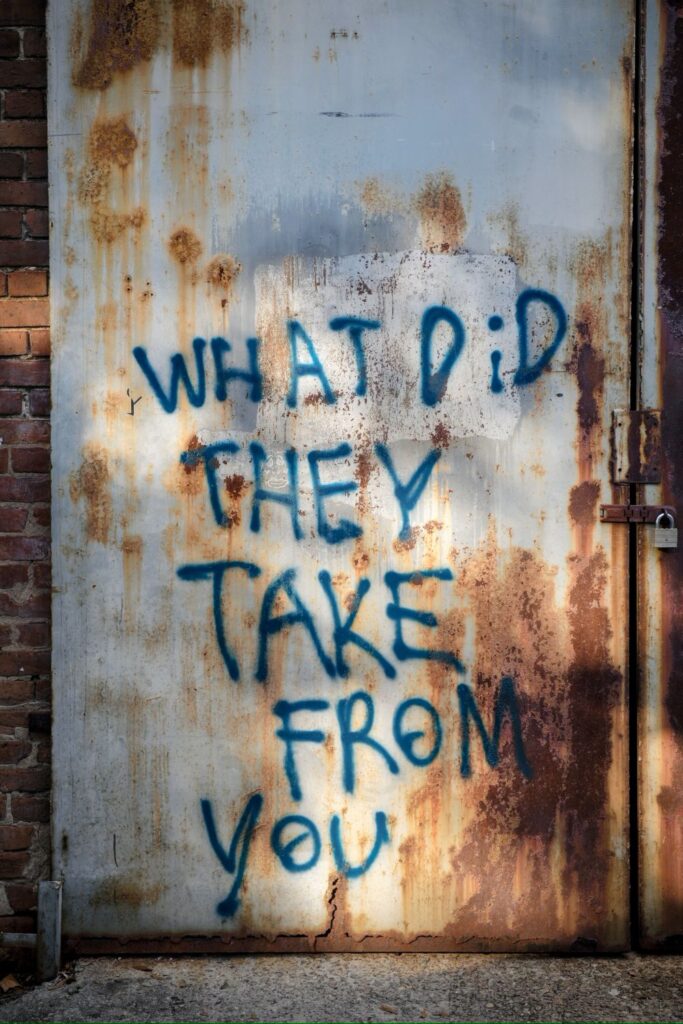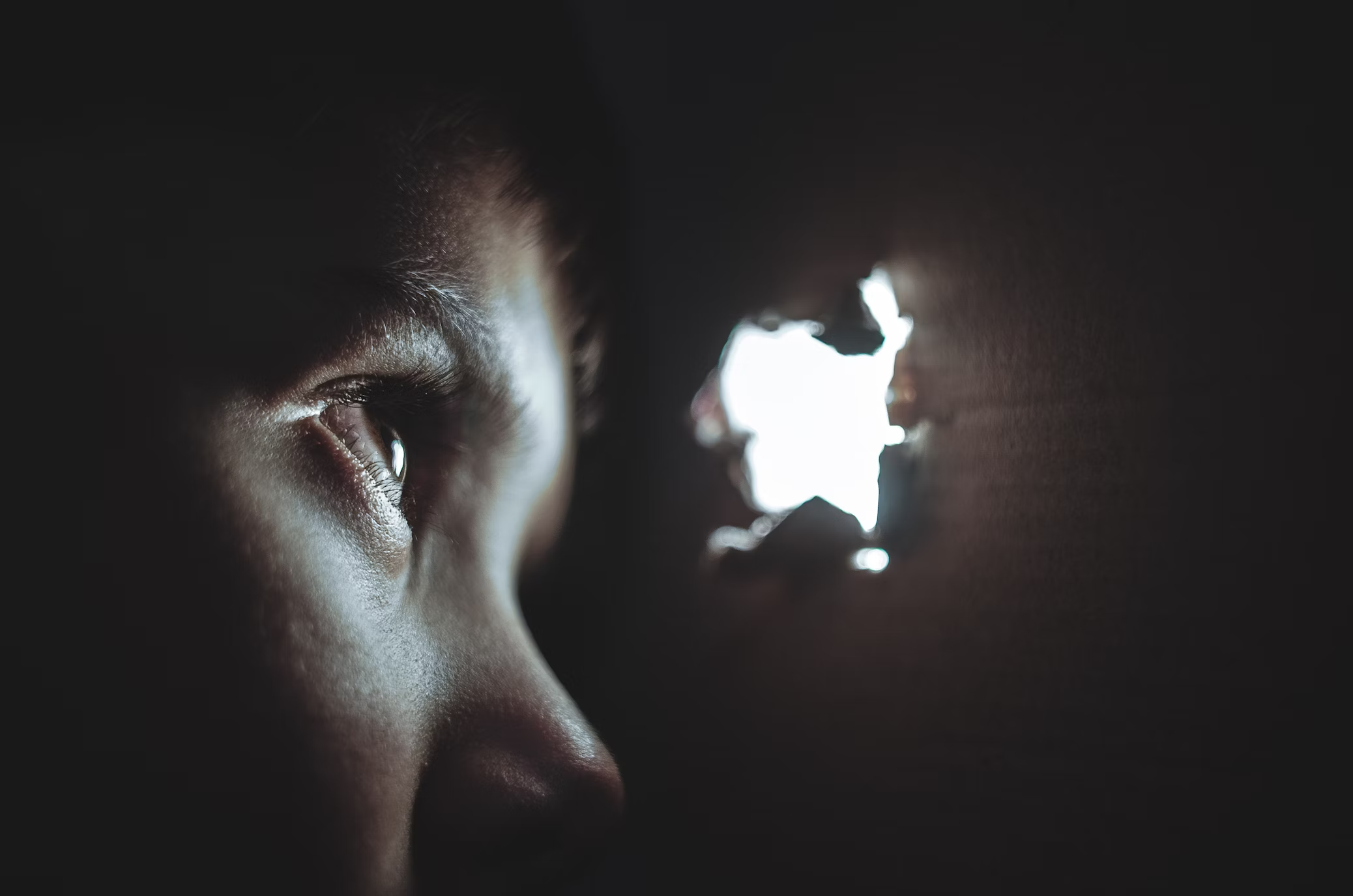Visibility is powerful, but there is also so much to grieve.
– Jamie Thrower, Queer Grief Club
The first outreach work I ever did in deathcare was a short speech delivered on campus at the Ohio State University in Columbus, Ohio during a Trans Day of Visibility event organized by a very good friend of mine. I worked with her to create a piece that discussed the honest fears and concerns of the trans and gender non-conforming community about their loss of visibility at end of life and in death. Trans visibility can and often is taken away at these times and as a deathcare professional, it is my responsibility to teach everyone how to prevent loss of agency and identity at this most difficult time. That was how my Death Without Deadnames presentation came to be and it has developed into not only a community facing outreach initiative, but a professional education program as well. This work is crucial and includes empowering you with the tools to survive the multitude of losses that come your way as well as acknowledging the complexity of your grief.
A very large portion of losses experienced by trans people are invisible losses, or losses that aren’t related to death. These quieter losses emerge in the wake of various life changes, such as the end of a career, the dissolution of a relationship, a financial setback, or a health diagnosis. When someone is transitioning, they can experience many of these losses in rapid succession. In a recent social media post, the Queer Grief Club, a passion project started by death doula, educator, and activist, Jamie Thrower, discusses the complexities and multi-layered losses trans and gender non-conforming individuals and communities face. Jamie reminds us that trans grief deserves visibility and care too. “Grief for trans folks is often unrecognized or dismissed, by not only the outside world, but often on an individual level and within the community itself.” Trans grief is very real, and it can include grieving the loss of a partner, family rejection, lost time, past identities, medical barriers, community losses, and more.
For those who transition later in life, studies have shown that nearly half of trans adults lose close or romantic relationships post-transition, this can leave them without a home, a support network, access to funds, on top of the emotional loss of the breakup itself. For trans youth, one in three of whom live in states which have restricted or banned gender affirming care, these loses range from friendships, family support, access to hobbies and activities, their home, medical care, and much more. Forty-five percent of transgender and non-binary young people have reported that they or their family have considered moving to a different state because of anti-LGBTQ politics and laws, yet another source of grief and loss as they move away from friends and family and endure the emotional, physical, and financial burdens of moving as well.
“For many of us, it becomes so important to perform our post-transition happiness that we ignore the messier, more honest realities of our transitions, which of course involve loss. Some of us lose people, some of us lose family and homes, some of us lose jobs. Some of us, especially those who transition in adulthood, must face the complex loss articulated so beautifully by our letter writer: The realization, in our happiness, that we were denied the joy of a fully embodied childhood. Trans people mourn the truth of growing up in a tilted reality, where our first kisses and best friends and passions and dreams were all imbued with a daily unreality; a terror borne of knowing our bodies aren’t being received, can’t be received, as we perceive them.” – Thomas Page McBee
This type of grief is often referred to as “nonfinite” grief or a “living” loss, meaning that this grief is experienced in relation to a loss that is ongoing, ambiguous, or not clearly defined, such as the inability to achieve a dream or aspiration, or grieving for the happy, carefree childhood you should have had, but were denied. Indeed, when discussing these types of losses with a trans loved one, they told me, “Being trans is living your entire life in coulda, woulda, shouldas, right? Who could I have been? What would I look like now if I had been allowed to transition earlier? What kind of childhood should I have had?” It is tempting to think of grief as universal, but like all grief, trans grief comes in many forms and isn’t experienced the same way by any two people. Some may grieve names or pronouns they no longer use, while others grieve not transitioning sooner. Some grieve community loss, while others grieve parts of themselves they had to let go for safety.
“Being trans is living your entire life in coulda, woulda, shouldas, right? Who could I have been? What would I look like now if I had been allowed to transition earlier? What kind of childhood should I have had?”
Grieving a non-death loss is just as valid as grieving when someone dies. The reality of all grief is that it is messy and nonlinear, it often holds many complex emotions, relief, longing, rage, joy, and sorrow, all at once. When grief is then further complicated by all these barriers and layers of loss facing trans people, it isn’t going to be straightforward or easy to navigate. We need to honor that by allowing ourselves and others to grieve without pressure to make it quick, easy, or neat. Because these losses can be less visible, those around you may not know they exist or think to ask about them, non-death losses are frequently disenfranchised or viewed as unworthy. You might even find yourself dismissing them, but remember that disconnection from family, being cut off from resources, or having to deny a part of your identity are all real sources of grief. Grief can and does exist in various forms, every variation of trans grief is valid and deserves care. The first step to healing from “invisible” losses is to name them. Each loss, whether it be a person, a role, denied opportunity, or a vision for your future, deserves acknowledgement to affirm that your feelings are real and worth exploring. Another important ingredient in healing from these losses is compassion, starting with self-compassion. Particularly in grieving losses that may go unacknowledged by others, practice speaking kindly to yourself when experiencing difficult emotions. Treat yourself as you would a friend by seeing and validating the loss without adding layers of judgment or guilt.
Trans grief is often compounded by systemic injustice, medical discrimination, and the loss of community members to anti-trans violence and inadequate healthcare. Trans grief is further complicated by the lack of trans-affirming bereavement spaces. So much of grief and bereavement care is cis/hetero normative, below are some LGBTQ+ specific grief support avenues:

Queer Grief Club is a project that first started as a way for death doula and educator, Jamie Thrower to share their personal grief story, but it has grown and bloomed into a beautiful community and advocacy space dedicated to supporting LGBTQ+ grievers. They host monthly grief release groups, art and movement events for grief, pop up events and more.
Hope Health Group provides a safe, confidential and supportive setting for LGBTQ+ individuals experiencing grief related to loss led by a specially trained facilitator in a virtual format.
The Grievery is a self-funded, queer-owned collective, that offers a brave and compassionate space where anyone, anywhere, can open their heart and feel a sense of belonging. Here, we honor the fullness of humanity—seeing and hearing each other in all our complexity, vulnerability, and resilience. Our work is rooted in the belief that every individual deserves to be seen in their wholeness, without judgment or limitation. We are committed to creating a space that is not only inclusive and affirming but also deeply grounded in community care, where we can hold grief and joy together.
Empty Arms Bereavement understands that pregnancy or infant loss is a devastating and tragic experience for all. Those within the LGBTQ+ community often face significant challenges to growing their families, including scrutiny from providers, economic burden, and societal stigma. Subsequently, the loss experience can be compounded for those who have had to overcome these barriers and/or seek assistance with reproduction. LGBTQ+ parents like yourselves deserve inclusive spaces and communities where they can connect with others to feel less isolated.
The LOFT Community Center offers a discussion/support group on Grief and Loss. This is an ongoing series of discussions with J Cruz, MSW/MSEd. Throughout our lives, we experience all sorts of types of loss such as a partner, family member, pet, job, health, relationship, etc. This discussion and support group is for members of the LGBTQ+ community to have a safe space to grieve and discuss the feelings of loss they are experiencing.
The message in the Queer Grief Club post that inspired this article that resonated with me the most is this, “In the same way we must help create a softer world where we foster Trans Joy and celebrate it, we must also fight for a world where Trans Grief is held, affirmed, and lovingly witnessed without questioning its validity or trying to reshape it into something more palatable.” The world we live in is making it very hard to be trans right now, and the constant bombardment with anti-trans hate from every angle is undoubtedly causing so much more grief. On this Trans Day of Visibility, I want you all to know that it is not just your joy and your beauty, but your sorrow, your rage, your longing, your loneliness, and your heartache that are important and deserve to be seen, in all their complicated messiness. I see your grief and I see you in it. I love you and I am here for you, always.

